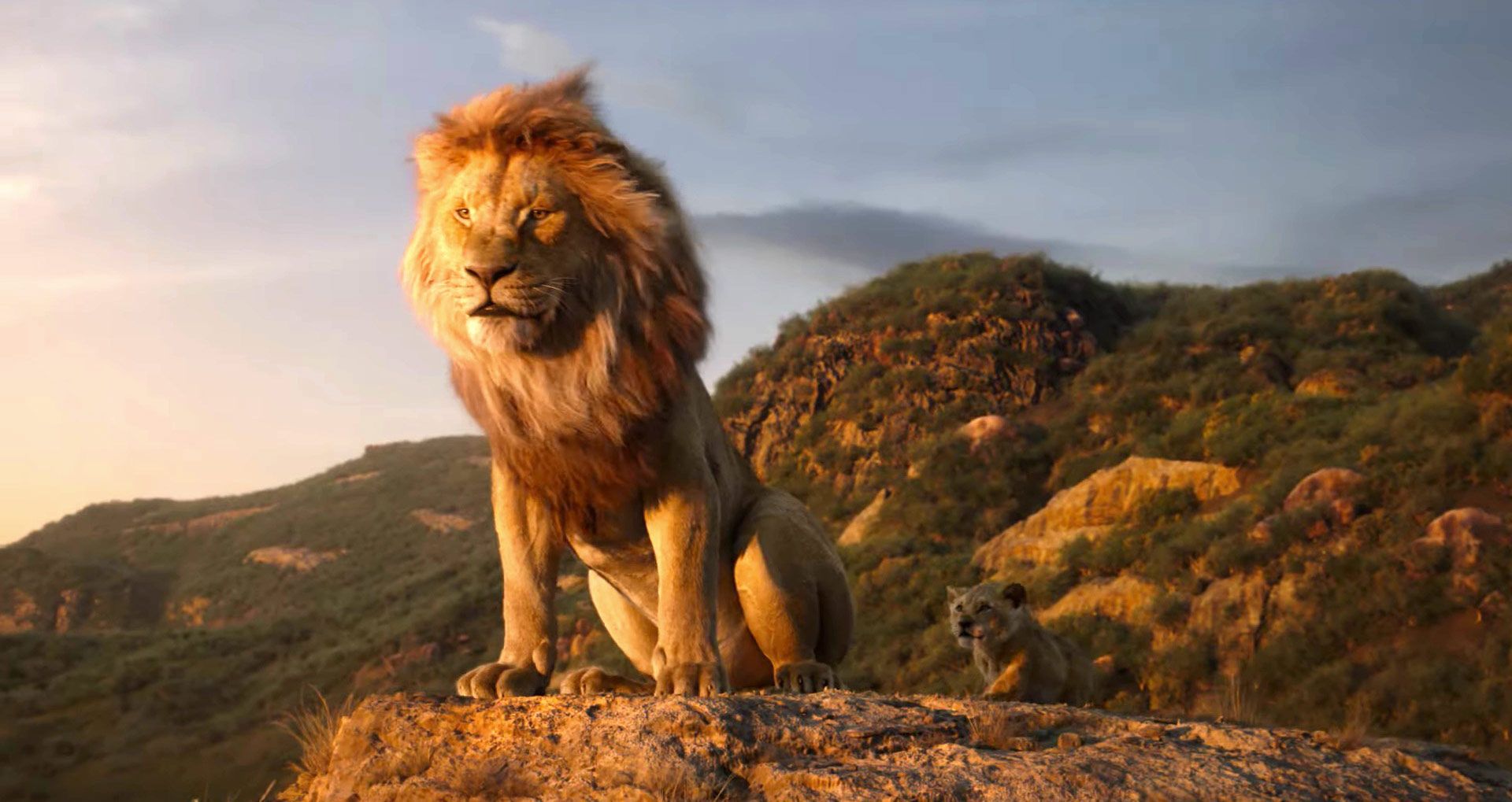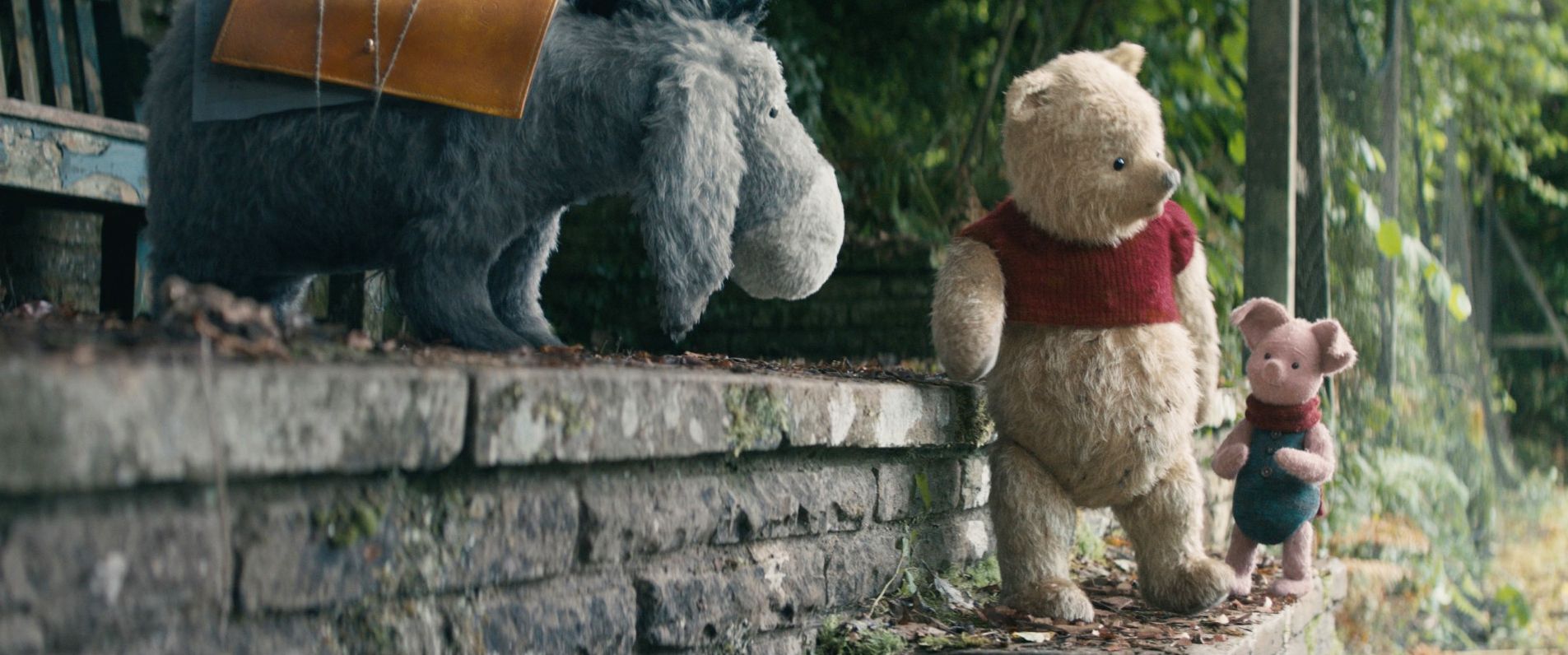There must have been a point this past decade when we
reached the peak of the unnecessary remake wave. Whether with Disney’s first
modern foray into the field with 2010’s $1bn dud Alice in Wonderland¸ the onslaught of remakes of cult action hits
like RoboCop or Death Wish, or maybe even when they produced a third iteration of Ben-Hur – only this time lacking the
awards calibre of the 1959 classic and presenting a lifeless religious product
with an increasingly tired Morgan
Freeman. Regardless of what could be considered the peak, one cannot deny
that the Disney mantra of reproducing their animated classics line into the
live-action format proved to be the most divisive of Hollywood’s efforts. The
aforementioned Alice reinterpretation
certainly played a lot looser with its 1950s counterpart in favour for a
darker, grittier version – complete with Tim
Burton’s trademark visual flourish – and in turn the benefit of being one
of the first post-Avatar 3D releases
allowed for more audience interest than would otherwise be garnered, but the film is hardly remembered nearly a decade on despite being one of the first big
billion-dollar movies; its later sequel would prove the lack of longevity by
grossing approximately a quarter of its predecessor’s numbers. The most its
legacy brings is the idea that remaking the classics can lead to massive box
office success, and if there’s one thing Disney loves, it’s profits.
As the first remake after Alice in Wonderland, Maleficent
followed a similar template by striving to be its own darker interpretation
whilst keeping the acquainted iconography. After all, Maleficent is arguably
Disney’s finest antagonist – it would be too risky to stray far away from the
familiar. But with it playing on similar tropes portrayed much more
successfully in the most recent animated fare Frozen whilst also going for a typical Wicked angle – with a sprinkling of rape allegory which really does
not fit into the world of Disney – and Maleficent
proved to be more so a commercial success than a critical one (though the jury’s still out on how its sequel, due this October, will be received). Around
the time of its release though, Disney was beginning to reveal that it was bringing
life to film a lot younger than their current output, with Beauty and the Beast set for a 2017 release: the first sign of
things going too far.
Before Beast’s
release still came two releases: Cinderella
in 2015, followed by The Jungle Book
a year later. Cinderella did the
least yet to differentiate itself from its classic counterpart, at most
limiting the usage of the mice slapstick to adhere to the more realistic
approach that audiences seemed to be eating up. The Jungle Book, on the other hand, seemed to have a lot more going
for it. It’s almost completely CGI landscape and cast benefitted more by merely
taking certain aspects of the 60s original and the key songs (‘Bear
Necessities’ and ‘I Wan’na Be Like You’) and instead giving versions of these
characters who are more distinct. The state-of-the-art animation elevated it
further and felt like the first of these remakes which actually made sense. But
its success was a curse, as a few months later director Jon Favreau was hired to enhance his work further with a remake of
everyone’s favourite: The Lion King.
The remakes of three of Disney’s biggest classics – so
beloved that they’re considered a part of Disney’s Renaissance period – have in
turn been the most divisive of all the remakes. Beauty and the Beast turned from a film that was so illustrious and
spectacular that it broke barriers and became the first animated film to be
nominated for Best Picture into a lifeless rehash that put more effort into
explaining its corresponding item’s plotholes than it did breathe new life into
old material; Aladdin had the difficult task of trying to replicate the magic that came from Robin William’s portrayal of the Genie whilst
also having to adhere to modern society’s required cry for a cast of actual Middle
Eastern/Indian descent (something that reportedly lead to production being
pushed back and presented a film that, while fine in its own regard, can’t hold
a lamp over the 1992 classic; then along came The Lion King, which released this past week after a long period of
online scepticism.
The Lion King may
very well be the straw that breaks the camel’s back, as it brings us what can
easily be regarded as the laziest recreation of them all. The marketing campaign focused
solely on two aspects: its visuals effects, which do indeed look gorgeous and
may be the only real reason to see it on the big screen, and its all-star voice
cast. Outside of that? Practically nothing of note. The realism of the animals
hinders the performances, individuality and choreography that are key for an
animated musical of this magnitude and it reeks of corporate greed rather than
artistic integrity. The lack of creativity can even be spotted across even the
smallest elements of its production, with
Hans Zimmer being brought back to just remaster his original score and even
soundbites from ‘Circle of Life’ being carried over to its new edition
(seriously, is there anything different in the new version?); they did a similar thing in Aladdin in ‘Prince Ali’ where they
reused the vocals of the people of Agrabah. There are small highlights and
additions – Billy Eichner as Timon is
an amusing iteration with a surprisingly good singing voice and there are a
few little bits of ad-libbing that make for some good laughs, but ultimately it
feels a lot lesser than it has any right to be. It’s the ultimate argument
against these remakes: the monetary value of these properties against the
artistic integrity that’s lost in translation.
Squeezed in between the releases of Beauty and the Beast and Aladdin
came two live-action adaptations of older properties: Dumbo and Christopher Robin (a
pseudo-sequel to The Many Adventures of
Winnie the Pooh). Both attempted to follow in the footsteps of The Jungle Book by implementing largely
different areas for the beloved characters to go down, but both faltered financially.
Dumbo is easily the worse of the two
(indeed, arguably of the entire plethora of output), as it sprinkles its
callbacks half-heartedly and turns into an entirely different movie midway
through that, bizarrely, seems to condone the very company that brought it to
life; not even forgetting that it turns the titular character into a supporting
aspect to two random children and (mostly) cuts out Timothy Q. Mouse in favour
of realism. Christopher Robin is far
from a perfect film, but at least it creates something new out of its source
material – an adult perspective on a children’s’ favourite that keeps the heart
of its beloved characters intact, right down to keeping Jim Cummings in the roles of Pooh and Tigger. It has tonal problems
and will likely bore its child demographic, but it’s the film that embraces
these characters the most whilst bringing a story that’s more unique than the
rest.
Unfortunately, the continuous success of these remakes has led
to regular reports of more and more break-ins to the Disney Vault to re-imagine
old favourites. Some are experimenting more with their material, with next year’s
Mulan looking like a completely
different film due to it being more reliant to the actual story of Mulan and actively
trying not to offend its Chinese audience and The Little Mermaid straying away from the iconic white red-head
mermaid with the casting of Halle Bailey
as Ariel, but that ultimately means little when it comes to the message it’s
sending studios – audiences don’t want originality. Hell, with almost all of their
non-20th Century Fox films earning a billion dollars this year (Dumbo is the sole outlier, whilst Toy Story 4 and The Lion King will both likely reach it soon) we’re telegraphing
that all we want are Disney films – an unhealthy sign for a corporation now
infamous for purchasing the competition and ensuring a monopoly of sorts over
modern cinema. And of course, Disney aren’t the only ones making unnecessary remakes,
but as the big kings of cinema right now they have every right to experiment and
tackle original ideas.


